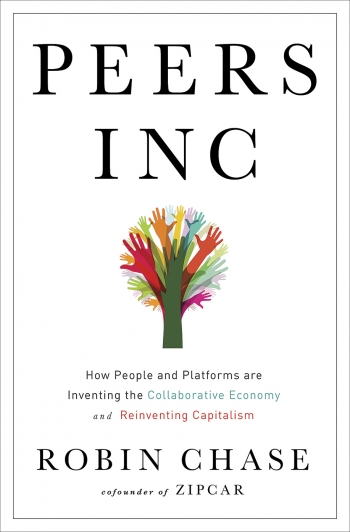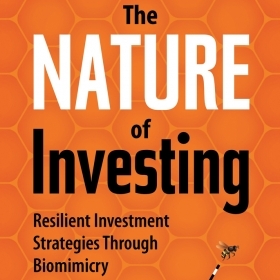Robin Chase ’80 changed my life in 2001. Or rather, her then early-stage startup, Zipcar, did. Suddenly this carless Bostonian could get places—to the beach, to the grocery store—that before had been difficult or impossible to reach. Chase and her team built a platform that allowed car rental by the hour, in turn creating one of the earliest examples of an internet-enabled “collaborative economy” company.
Since Zipcar got started, a lot has changed. Perhaps most significantly, most of us now carry computers in our pockets. In her new book, Peers Inc, Chase reflects on the social and technological trends that have informed the rapid development of the sharing economy. Companies build platforms to enable collaboration (she refers to each of these companies as an “Inc”) among users (she calls them “Peers”), to facilitate the sharing of products and services. While the use of the Peers/Inc construct becomes a bit repetitive after a while, Chase’s analysis of this rapidly proliferating business model and the outsized impact it has had and will have on our economy and our lives is fascinating.
Peers Inc takes us on a tour of how much our lives have changed since we first plugged GPS devices into our cars’ cigarette lighters. Only a decade ago, this seemed so clever. Now our phones perform that function, only better and cheaper. (Thanks, Waze.) The computing power we each carry in our pocket is extraordinary not only because of Moore’s Law—the observation made 50 years ago by Gordon Moore, cofounder of Intel, that the number of transistors per square inch on integrated circuits had doubled every year (revised to every two years in 1975) since the circuit was invented. It’s also because of what we’ve all helped create thanks to sharing platforms like Uber, Airbnb, YouTube, and Bitcoin.
Once dormant assets—our houses, our cars, our afternoons—have become powerful as we choose how and when to monetize them. Securing groceries, a housekeeper, or a date now only requires the tap of a button. More importantly, people who need or prefer flexible work and the opportunity to exercise autonomy about how they spend their days can build this kind of work life using these new platforms.
Chase shares her ideas at a critical moment in the evolution of the collaborative economy. Her book concludes with a call to action: “This book is a dare,” she writes. The environmental, social, and financial implications of sharing resources are huge and Chase wants us all to jump in. She wants the platforms to develop equitably, sharing power and value with their members. And she wants each of us to be empowered by the broad array of choices we have for sharing resources that yesterday’s industrialized age could not deliver.
Webb is executive director of the New England Venture Capital Association in Cambridge, Mass., and a passionate supporter of the startup community.







We ask that those who engage in Wellesley magazine's online community act with honesty, integrity, and respect. (Remember the honor code, alums?) We reserve the right to remove comments by impersonators or comments that are not civil and relevant to the subject at hand. By posting here, you are permitting Wellesley magazine to edit and republish your comment in all media. Please remember that all posts are public.